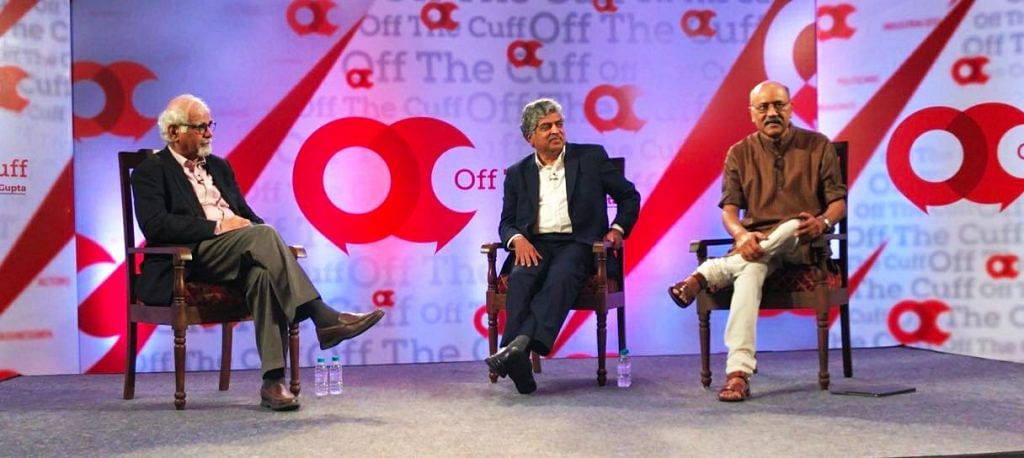Bhalla, a member of PM Modi’s Economic Advisory Council, said he’s hoping for a change of heart from India’s central bank because high interest rates are really hurting the economy.
New Delhi: Monetary and fiscal policies are significant determinants of growth and it is embarrassing to say interest rates don’t matter, Surjit Bhalla, one of India’s top economists and a member of Prime Minister Narendra Modi’s newly-formed Economic Advisory Council said.
Bhalla was speaking at ThePrint’s ‘Off The Cuff’ event in Bangalore late on Tuesday, a day before the Reserve Bank of India’s bi-monthly monetary policy. Economists and market analysts expect the six-member monetary policy committee of the central bank to keep the rates unchanged.
Asked whether there was any scope for rate cuts this time around, Bhalla pointed out that despite the RBI’s target of 1.25 per cent, real interest rates in the past 14 months had nearly tripled from 1.25 per cent to 3.2 per cent, which is nearly 200 basis points.
“We need to get worried… I am expecting a change of heart because I think we are really hurting the economy,” he said.
“The only instrument you have for both enhancing growth and decelerating growth is interest rates… it is embarrassing to say interest rates don’t matter,” Bhalla told ThePrint’s Editor-in-Chief Shekhar Gupta and Infosys Chairman Nandan Nilekani who shared the stage with Bhalla at the event.
Nilekani is also an investor in ThePrint.
Bhalla, whose latest book, ‘The New Wealth of Nations’, was released late last month, also stressed on the importance of education and sanitation in a developing country like India. The failure to address these issues was a big mistake, he said.
Although he didn’t support universal basic income, Bhalla said his outlook had changed a lot due to the “fantastic global supply of education”.
Bhalla said he once believed that ‘a rising tide will lift all boats’, an aphorism used by economists to convey the idea that improvements in the general economy will benefit all participants in the economy. However, he now feels that focus on macroeconomic growth alone would not solve the problem and active state intervention is the need of the hour.
On healthcare, the economist said he was a huge believer in universal healthcare services and to achieve this goal, improving primary healthcare needed more attention.
Stressing that sanitation is an integral part of healthcare, he said addressing this issue could solve many other problems related to it. He also lauded the present NDA government’s effort in bringing toilets to every household and said it would lead to improvement in basic healthcare as well as in women’s empowerment.
Bhalla said more and more women in the age-group of 15-24 are pursuing education, leading to a visible decline in women’s participation in the labour force.
“Just wait five years because the change in the education of women and the empowerment has been very rapid,” he assured.
Bhalla also spoke about the UPA government’s role in introducing basic education and healthcare policies in the country, saying it was possible because the Congress was in power for a long period.
“Only after 10 years or so can we make a comparison between left of centre and right of centre,” he said.
